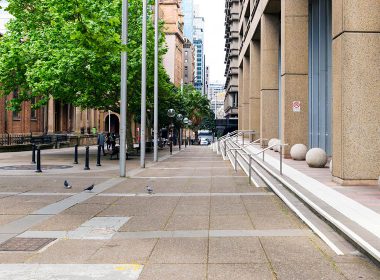The Australian Competition & Consumer Commission (ACCC) has launched proceedings in the Federal Court against supermarket chains Woolworths and Coles for allegedly deceiving consumers through their discount promotions on hundreds of common products.
The ACCC says both Coles and Woolworths temporarily increased the price of over two hundred products before placing them through their “Down Down” (Coles) and “Prices Dropped” (Woolworths) promotions at a higher than or same as, the price. According to statements prepared by the consumer watchdog, the retailers “represented to consumers that the prices of Affected Products promoted (on “Down Down and “Prices Dropped”) were discounted when, in fact, the purported discount was illusory”.
“Following many years of marketing campaigns by Woolworths and Coles, Australian consumers have come to understand that the ‘Prices Dropped’ and ‘Down Down’ promotions relate to a sustained reduction in the regular prices of supermarket products,” said Gina Cass-Gottlieb, ACCC Chair.
In addition, the ACCC also alleges that both retailers had “already planned to later place the products on a promotion before the price spike, and implemented the temporary price spike for the purpose of establishing a higher “was” price,”
The ACCC conducted a thorough investigation, following consumer comments and monitoring social media. It identified that Woolworths used this practice in 266 products over 20 months and Coles in 245 products over 15 months.
“Many consumers rely on discounts to help their grocery budgets stretch further, particularly during this time of cost of living pressures. It is critical that Australian consumers are able to rely on the accuracy of pricing and discount claims,” Cass-Gottlieb said.
“We allege these misleading claims about illusory discounts diminished the ability of consumers to make informed choices about what products to buy, and where.”
Both retailers pointed to the previous price when advertising their promotion in a “was” section of the ticket, but the ACCC claims they planned to place the products on a promotion prior to raising the price, therefore establishing the temporary increase as the correct past price.
The ACCC only considered products with a price hike of at least 15 per cent, which remained for up to 45 days before getting a Down Down ticket that was higher than or the same as the regular pre-hike price.
For example, the ACCC pointed at a brand of throat lozenges marked in Coles for $5.50 for about 649 days. On October 12, 2022, Coles increased the price to $7 for a period of 28 days, and on November 9, it was marked with a “Down Down” ticket for $6 showing the “was” price as $7—nine per cent higher than the original price.
The Australian consumer advocacy organisation Choice welcomed the ACCC’s class action. In a statement, the organisation cited its own research, which revealed that, on average, 1 in 4 people struggled to identify if a discount was genuine.
“This kind of bad behaviour (…) urgently needs to be addressed – particularly during a cost of living crisis when people are doing it tough.”
“We’re calling for greater transparency of historical supermarket pricing data, as easier access to data on supermarket price changes over time would have made it much harder for the supermarkets to get away with this kind of behaviour for so long.”
The ACCC seeks relief on the grounds that both retailers breached Australian Consumer Law through “misleading and deceptive conduct” and “made false or misleading representations with respect to the price of goods.”
The ACCC doesn’t state the amount it seeks for relief, noting instead the maximum penalty for each breach of the ACL increased in 2022 to be the greater of either $50 million or three times the “reasonable attributable” benefit obtained.
If the Court cannot determine the value of the said benefit, it will be 30 percent of the corporation’s adjusted turnover during the breach period.




